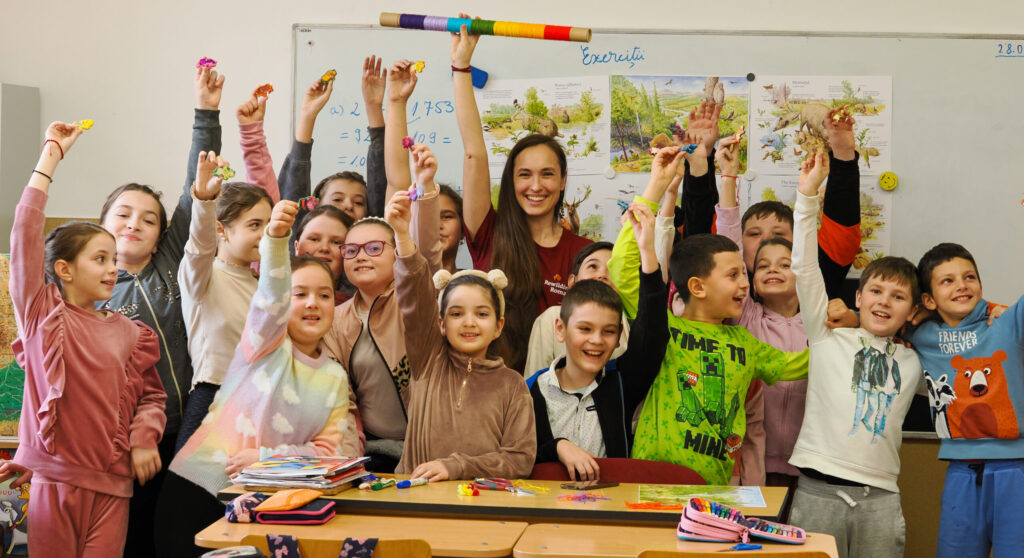Rewilding Romania’s initiatives aim to create more space for nature to regenerate, revitalise rural communities, and create new opportunities for people living close to nature. Over 200 fully free-roaming bison live in the Țarcu Mountains. The young generations growing up here are forming their identities in a place where the bison is once again part of the landscape. It is important that they understand why this species was reintroduced and what benefits it brings to both nature and people. The educational programmes developed by Rewilding Romania help them understand the bison as well as other key species and their roles.
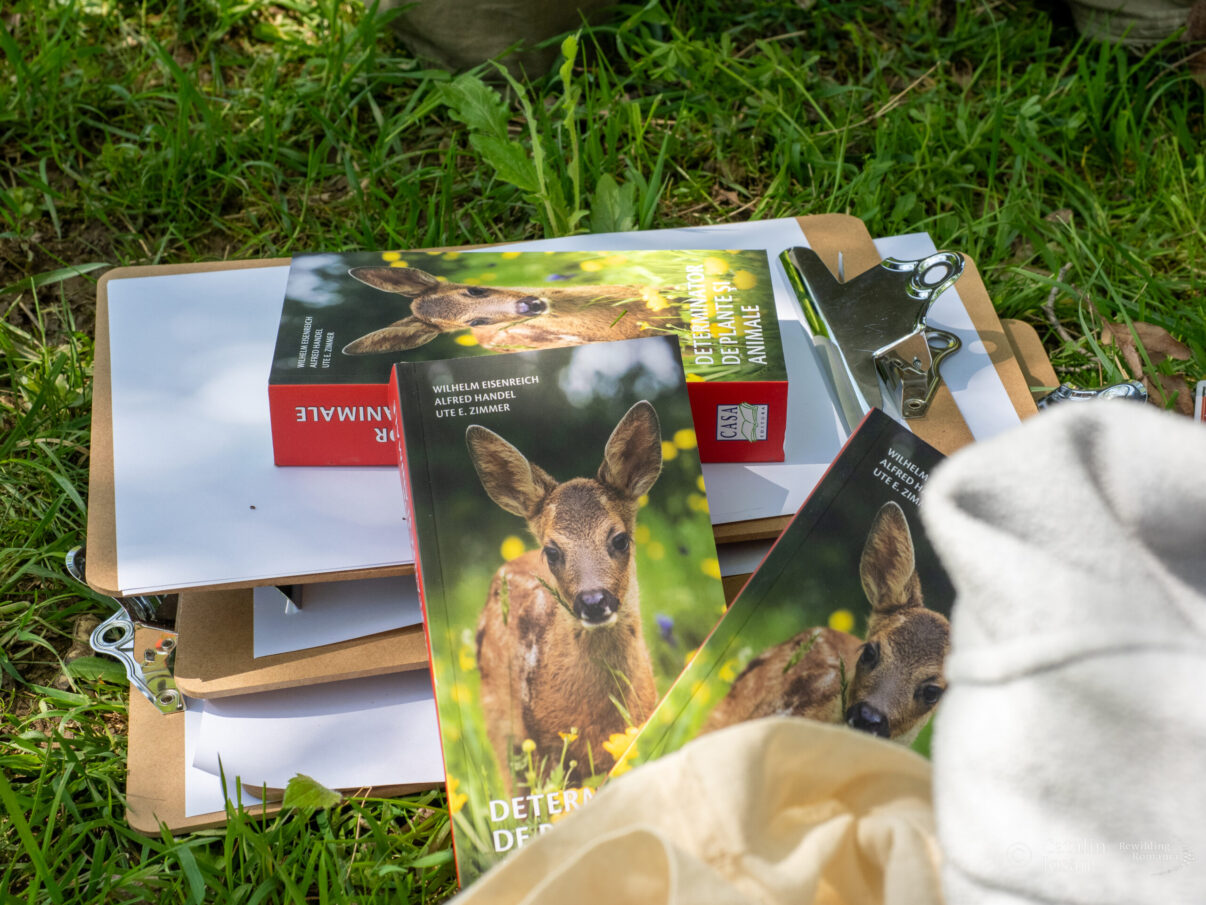
Nature Education supports Local Communities
Harmonious coexistence with wildlife—and nature in general—is only possible through the involvement of local communities. It is essential that every resident understands how rewilding initiatives contribute to natural balance and to the development of the local economy.
In this context, nature education plays a vital role. Connecting children with nature fosters their respect for it and their desire to protect it.
Moreover, for many young people, the activities we propose can serve as inspiration for a future connected to nature or a job close to home. In rural areas, opportunities for earning a decent living are often limited. Better-paying jobs are typically found in nearby cities or even abroad, and children grow up believing that a good life is not possible in their home villages. In this sense, the example provided by the rangers—locals themselves from Armeniș, Sat Bătrân, Rusca—opens new perspectives and ideas.
After discussions with educators in the schools located in the Rewilding Landscape (Retezat-Țarcu-Domogled), we identified the real needs of children growing up in rural environments. Through our educational programmes, we aim to respond to those needs.
Green Week – An Opportunity to Connect with Nature
Green Week is a national environmental education programme that promotes awareness, sensitivity, and responsibility among students regarding their relationship with nature. During this week, each school sets its own calendar of activities, tailored to the local context. Classes take on a different format, and students aren’t just sitting at desks. They participate in activities such as educational games, hikes, cleanup actions, recycling and responsible consumption workshops, field trips, and outdoor lessons.
The Rewilding workshops we propose during Green Week are based on experiential learning methods, tailored to the students’ ages and the local context, and follow the principles of education for sustainable development.
Our goal is to help young people better understand the ecosystems they are part of, the species living in them, the importance of each one, and our role as humans in protecting biodiversity.
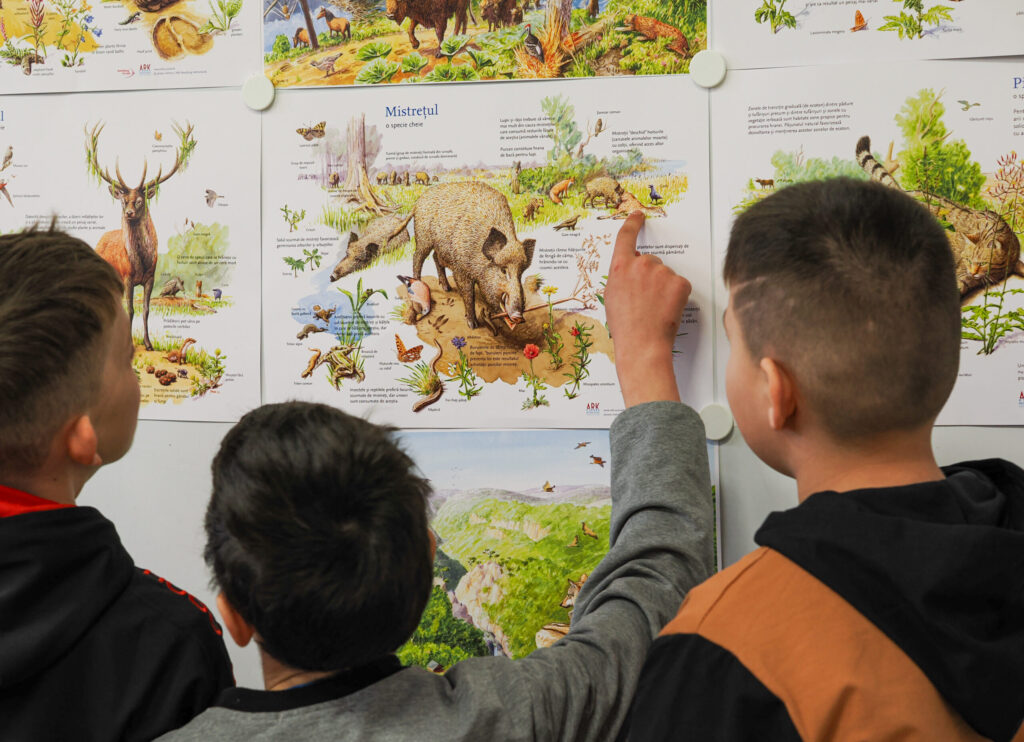
Rewilding Workshops
“Rewilding” is a term that defines a new approach to conservation focused on restoring natural processes with the help of key species.
The workshops we’ve created focus on biodiversity and the connections between species within an ecosystem. The first workshop in the series introduces the concept of species diversity and the importance of each one for a healthy, functioning nature. We also created species-specific workshops where we focus on a key species and its role.
For the youth in Armeniș, Teregova, and Cornereva, the presence of bison is a known fact—some have even seen them—but few understood their ecological role. Together, we discovered that the bison is not just any animal, but a keystone species. What does that mean? It means it has a natural behaviour that supports many other species. We learned that bison create new paths through thickets that other animals can use, help maintain open meadows, disperse plant seeds, contribute to carbon storage, and that frogs use water pooled in their hoof prints to move between ponds. Birds use the bison fur left on bushes or tree bark to insulate their nests.
Through these workshops, we aim to satisfy children’s curiosity with meaningful knowledge and spark their passion for nature, so that when they grow up, they become protectors of the wild and advocates for life.
Workshops and Courses for Teachers
Over the past year, we’ve reached hundreds of students in Armeniș, Teregova, Feneș, Sat Bătrân, Cornereva, Gruni, Obârșia Cloșani, Deva, and Hațeg. We ran workshops for children at Lynx Festival, Hațeg Royal Trail (a mountain trail running competition organised by ZMBR team), and Hercules Marathon. We also collaborated with Retezat National Park, Casa Vulcanilor, the Slivuț Bison Reserve, and the UNESCO International Geopark Țara Hațegului.
While outdoor activities and rewilding workshops help develop knowledge and passion for nature, we recognise that if we want nature education to reach more young people, teachers are key.
Together with our friends from Schubz – the Centre for Education and Sustainable Development – we developed a three-day course dedicated to teachers. During the course, Schubz trainers discussed experiential learning and interactive teaching methods that engage students. At the end of the course, teachers received a useful collection of activity ideas, new learning tools, and fresh resources to help them inspire the next generation of nature lovers.
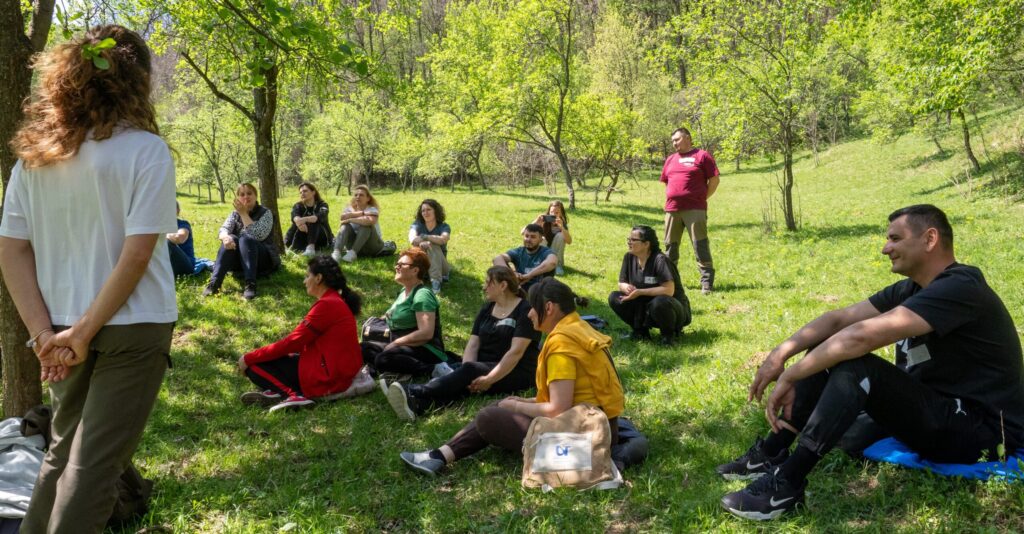
We are grateful for the openness of educators and schools in Armeniș, Cornereva, and Teregova, and especially for the opportunity to connect our mission with people who have dedicated their lives to shaping young minds.
Junior Rewilders Camps
We want to give children the chance to explore nature and see with their own eyes the activities and species we talk about in our workshops.
In our summer camps, we combine nature education with interactive activities, hikes, workshops, excursions, and rewilding-themed games.
For a few days, the children become junior rangers, patrolling nature and looking for animal tracks, identifying plant species, and learning about them in order to better understand their surroundings.
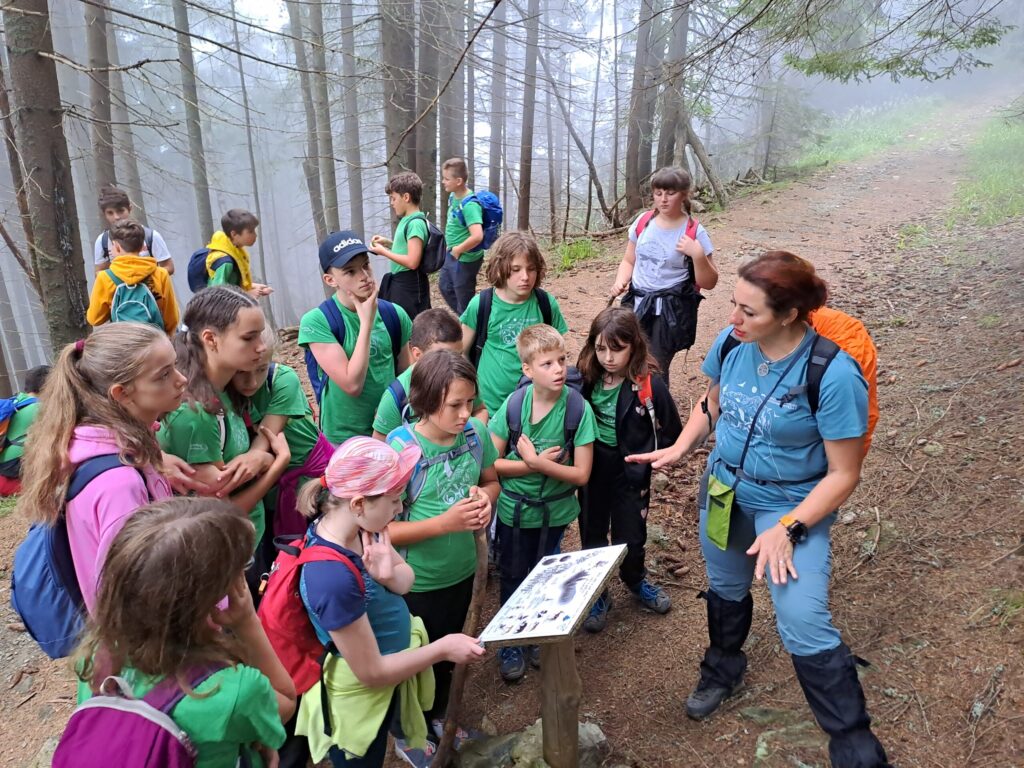
Together with the Rewilding Romania rangers, they install wildlife monitoring cameras and later retrieve them to study a specific area and discover what species live there.
At the end of the camp, the junior rewilders are the ones telling us about nature—what they discovered through their own experiences and what they understood by exploring the world around them. And we are the ones who walk away with a beautiful lesson about a future where we give more space to nature and more trust to those growing up to care for it.
For children, every experience is a learning opportunity. Education doesn’t happen only in classrooms—it happens wherever there are people willing to share their knowledge and open minds to receive. Nature is our greatest ally, and we are grateful that through these workshops, and alongside people we meet through our activities, all of us are learning to be better allies to nature.
